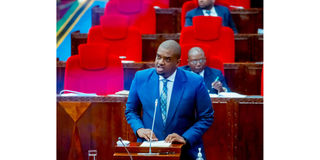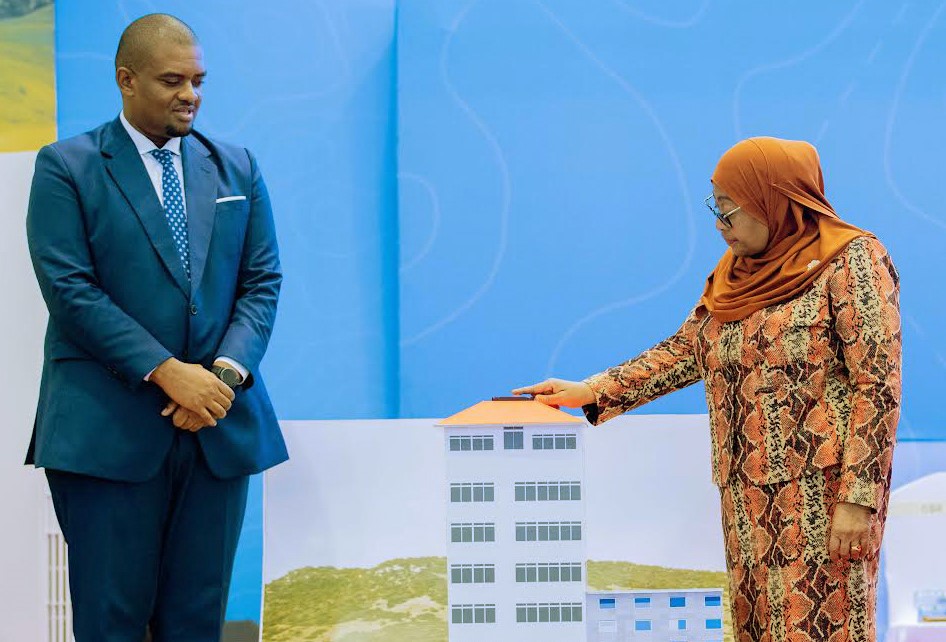Prime
Tanzania intensifies push to tackle land conflicts, upgrade settlements

What you need to know:
- Tabling the budget in Parliament on May 29, 2025, Mr Deogratius Ndejembi announced that one of the priority areas includes upgrading informal settlements, beginning with Makangira in Msasani, Dar es Salaam
Dodoma. The minister for Lands, Housing and Human Settlements Development, Mr Deogratius Ndejembi, has unveiled fresh plans to tackle persistent land conflicts and formalise unplanned settlements, as part of the ministry’s Sh164.1 billion budget for the 2025/26 fiscal year.
Tabling the budget in Parliament yesterday, Mr Ndejembi announced that one of the priority areas includes upgrading informal settlements, beginning with Makangira in Msasani, Dar es Salaam.
“We will start with Makangira as a model and will capture images of many areas to update urban planning maps,” he told the House, which passed the budget after a two-and-a-half-hour debate.
The budget outlines seven priority areas, including expediting land planning, surveying, registration and issuance of land titles in both urban and rural areas.
It also includes strengthening ICT systems to improve revenue collection and access to land data and valuation services.
Mr Ndejembi highlighted efforts to resolve land disputes, noting that 5,801 cases were administratively settled by May 15, 2025—well above the target of 3,000. The ministry aims to address another 3,000 cases in 2025/26.
To this end, the ministry has established 18 new district land and housing tribunals, bringing the total to 115. It plans to open 24 more, ensuring all 139 districts in the country are covered. “These will help resolve the 11,725 remaining and incoming cases,” the minister said.
Rapid urban population growth has contributed to a rise in unplanned settlements, now accounting for 67.1 percent of all residential areas, according to the 2022 Building Census.
To address this, the ministry is preparing a special redevelopment programme targeting 111 dilapidated or informal areas covering 24,309 hectares in 24 regions.
On housing, Mr Ndejembi said the government approved a Sh174 billion loan for the National Housing Corporation (NHC) to continue with its projects.
Completed initiatives include the Sh137 billion Morocco Square project, where all 100 housing units have been sold, and office spaces rented out.
The Kawe 711 project, which received Sh169 billion, is 70 percent complete and expected to be finalised in the next financial year.
Discussions are ongoing to resume construction on the Sh71 billion Golden Premier Residence project, also located in Kawe, with completion expected by June 2025.
Meanwhile, the Parliamentary Committee on Lands, Natural Resources and Tourism has called on the government to return the mandate of collecting land rent to the ministry, citing its legal and technical capacity.
The committee also urged the government to speed up land surveying and planning to reach the goal of issuing 100,000 plots by June 2025. The debate also saw fiery contributions from MPs.
Special Seats MP Halima Mdee demanded clarity on unresolved land issues affecting residents of seven neighbourhoods in Kawe and Kibamba.
“These residents, numbering over 250,000, are being mistreated despite lawfully occupying the land,” she said, citing a controversial 1980 land acquisition by DDC.
She added that successive ministers, failed to resolve the matter.
“I hope you, Minister Ndejembi, will be the one to finally bring justice to these people,” she said.
In response, Mr Ndejembi acknowledged the issue and confirmed that meetings with stakeholders have taken place and proper plans are underway.
Other MPs raised concerns over the high cost of rent in NHC housing and the conduct of middlemen and rogue officials within the ministry.
MP Livingston Lusinde accused some officials of collaborating in fraudulent land deals.
“We need strict oversight and proper land demarcation, especially in rural areas to protect herders and other vulnerable groups,” he said.




